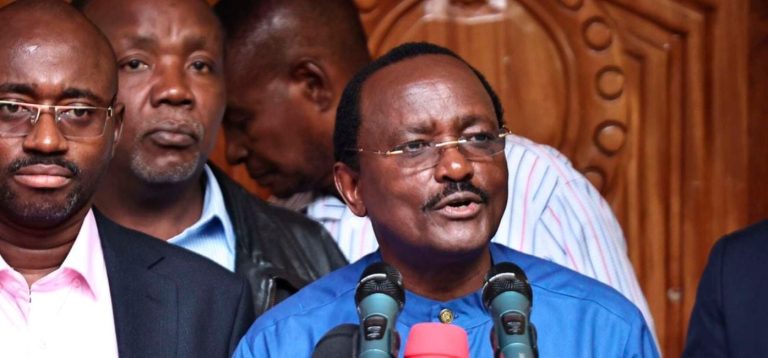Kenya has made a bold and surprising decision to end the ninth review of the International Monetary Fund (IMF) program.
This move marks a significant change for the country, which has depended on the IMF’s financial arrangement since April 2021.
The decision came after Kenya formally asked the IMF to consider creating a new program. This new arrangement would help the country find a better way to rebuild its financial policies and improve its economic strategies.

As a result of this shift, the current Extended Fund Facility (EFF) and Extended Credit Facility (ECF) programs will no longer be in effect.
This means that Kenya will only have one active IMF program left: the Resilience and Sustainability Facility (RSF).
Understanding these IMF programs is important. The EFF and ECF programs were created to help countries struggling with inflation caused by structural problems.
These programs provide financial assistance, allowing countries enough time to recover and strengthen their economies.
Specifically, the EFF program gives a country up to four years to make economic changes, while the ECF program can last up to five years.
On the other hand, the RSF program is focused on supporting a country’s efforts to combat climate change.
Back in April 2021, Kenya and the IMF made an agreement. As part of this deal, the IMF promised to give Kenya Ksh.467.5 billion under the EFF/ECF arrangement.
So far, Kenya has received Ksh.404 billion. However, since the country is now ending the program, it will not receive the remaining Ksh.63.4 billion.
The Benefits
Some economic experts believe that Kenya had little choice but to step away from the IMF program. They argue that the government had struggled to meet the strict financial targets set by the IMF.
In fact, they suggest that even if Kenya had continued with the ninth review, the country might not have qualified for additional funds.
Economist Churchill Ogutu, who works with the financial consulting firm IC Group, explained that Kenya has failed to meet its fiscal targets since 2023.
During the sixth review, Kenya only met one out of ten key economic benchmarks. Because of this poor performance, there was a strong possibility that Kenya would not have received funds in the ninth review.
Looking at it from another perspective, Kenya has already accessed 89% of the total funds approved by the IMF.
This means that ending the ninth review does not necessarily prevent Kenya from qualifying for future financial support.
Instead, it could allow the country to explore new financial options under a different arrangement.
The Challenges
While Kenya’s decision may have some benefits, it also raises concerns. One major worry is how the financial markets will react.
Investors generally see countries that cut ties with the IMF as risky. Since Kenya is now ending a key IMF program, some investors may feel uncertain about the country’s financial stability.
Even though Kenya has asked the IMF for a new program, the details of this request are still unclear for now.
This uncertainty makes it difficult for investors to predict what will happen next, which could make them hesitant to invest in Kenya.
The Risks
When investor confidence drops, it can lead to serious economic problems. For example, some investors may decide to take their money out of Kenya, which could cause a financial crisis.
This situation, known as “capital flight,” would weaken the Kenyan shilling, making it lose value against foreign currencies.
If the shilling weakens, importing goods from other countries will become much more expensive. This would cause prices to rise, leading to higher inflation and increasing the cost of living for ordinary Kenyans.
Another major concern is that the IMF helps keep countries accountable for how they manage their finances.
By providing oversight and guidance, the IMF ensures that governments spend money wisely. Without this oversight, there is a risk that Kenya could face financial mismanagement, leading to wasted resources and further economic problems.
A Possible Lifeline
Despite these risks, economist Churchill Ogutu believes that Kenya’s request for a new IMF program could help reassure investors.
He explained that having an IMF-backed program gives investors confidence because it signals that a country is following sound economic policies.
Initially, investors reacted negatively to the news of Kenya ending the ninth review. However, since Kenya is now negotiating a new arrangement, this could help restore trust in the country’s economy.
Investors are now watching closely to see what kind of financial support Kenya will receive next.
What Comes Next?
Looking ahead, Ogutu outlined three possible IMF programs that Kenya could consider:
- A finance-based program: This would provide Kenya with direct financial support, but it would also come with strict conditions. Kenya would have to meet high standards to qualify for funding, which could make things difficult.
- A non-financed program focused on capacity building: This approach would not provide direct financial support, but it would offer valuable training and learning opportunities. Kenya would receive expert advice on how to improve its economy, making it more self-reliant in the long run.
- An insurance-based program: This would act as a financial safety net, helping Kenya manage economic shocks and unexpected financial crises.
Ogutu believes that the best option for Kenya would be the capacity-building approach. This would allow the country to develop stronger financial management skills while avoiding the strict conditions of a finance-based program.
At the same time, he warned that if Kenya chooses a finance-based program, it will likely face tougher economic conditions.
The IMF would require the country to meet strict targets before providing any financial assistance. Given Kenya’s past struggles with meeting IMF targets, this could be a challenging path to take.
Conclusion
Kenya’s decision to step away from the IMF’s ninth review is a significant turning point. While it gives the country a chance to explore new financial strategies, it also comes with risks.
The impact on investor confidence, the possibility of a weakened currency, and rising inflation are all concerns that need to be addressed.
As Kenya negotiates a new IMF program, the government must carefully consider its options. Choosing the right financial path will be critical in ensuring economic stability and growth.
In the coming months, all eyes will be on Kenya to see what happens next and how the country navigates this new economic chapter.
Follow https://kenyaonline.xyz for more.













